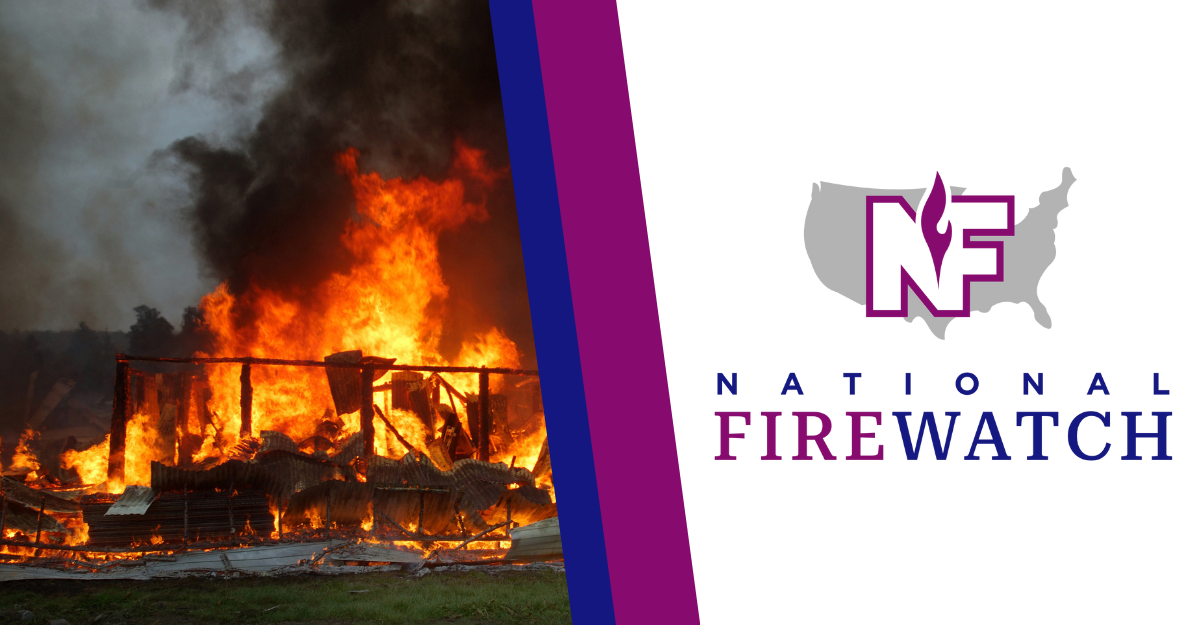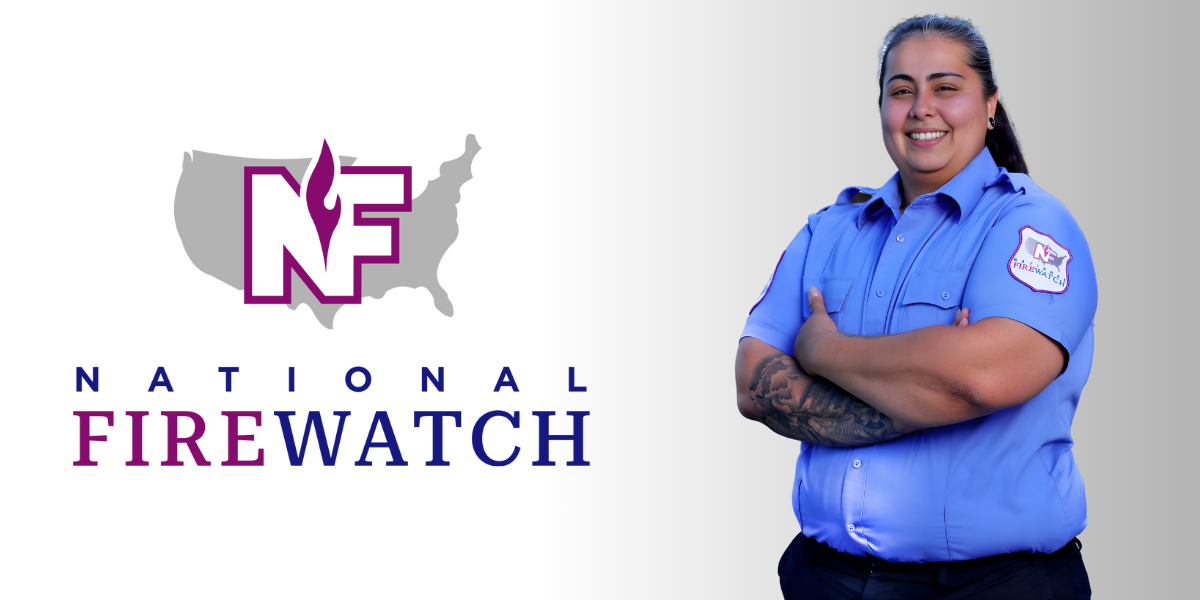At the time of this article’s writing, there are 375 active wildfires across the United States. These affect many regions that are not accustomed to dealing with wildfires. Many organizations will be adapting to changing conditions on the ground and may need new tools with minimal lead time.
The safety of personnel and property is paramount for all decision makers. Every facility manager will undoubtedly have an emergency plan if a fire is detected on-site, but are you prepared for an approaching wildfire? Can your team remain safe and productive while there is an active threat in the area? Do you have access to fire watch guards who can reliably deploy to your location?
We’ve put together this short read to help folks in our network understand the active threat of wildfires in 2025. We hope to share some info that will help prepare your team for emergencies. Most importantly, we’ll provide information on the critical role that fire watch guards play in wildfire preparedness and response.
Wildfires and Fire Watch
Fire watch guards are required on-site whenever built-in fire detection and suppression systems go offline. This could occur due to faulty equipment or wiring or a system-wide outage.
Regardless, if fire safety systems are offline for more than four hours in a twenty-four hour period, fire watch guards will be needed to keep your job site or facility open. Failure to comply could result in an evacuation order from your Fire Marshal.
During wildfires, outages become increasingly common as energy infrastructure suffers damage. Fires happening far from your job site may affect your energy availability. You may need fire watch guards in a hurry when an outage occurs.
A live map of outages across the United States reveals the obvious correlation between wildfires and power outages, which affect vast swaths of the country. If you manage a large facility that can’t afford a shutdown, it is prudent to understand your local energy infrastructure. What nearby regions may be affected by spreading wildfires, and how might energy be disrupted as a result?
Industries Affected by Wildfires
Any building can be placed under an evacuation order if there is a credible fire threat and no safety systems in place. Nonetheless, certain industries are often the first and most affected by wildfire damage:
Construction Teams
Managing construction projects and their many moving pieces is difficult enough without the added risk of wildfire. Construction sites are often exposed to the elements and may not have the industrial safety systems of a factory floor. Nonetheless, Hot Work, such as welding, torching, or brazing, is often required on-site for a project to proceed on time.
Fire Marshals will likely require fire watch guards on site when hot work is being done under any circumstances. If wildfires are active in your region, fire watch guards may be required to observe fire risk even if no hot work is actively being performed.
Event Organizers
Whether an event occurs at a large urban venue or in a remote location, wildfires present an imminent danger to attendees and staff alike. Packing hundreds of people into a small space creates logistical challenges if evacuations are required. Every second of additional warning will count if a wildfire shifts toward an active event site.
If there are any reports of wildfires in your region, fire watch guards are an excellent way to observe and report on risk in real time. This will ensure that your event proceeds safely and that evacuations occur before risks become active.
Warehouses
Large amounts of inventory present an inherent fire risk in any situation. Unfortunately, even the most up-to-date fire detection and suppression system cannot overcome wildfires. If an outage occurs, your commercial property may be vulnerable within hours of the initial signs of wildfire.
Worst of all, you may find yourself in a situation where fire watch guards are difficult to source. It has been our experience that widespread outages create overnight demand across entire cities and counties, resulting in fewer available fire watch guards. By establishing a relationship with a reliable fire watch provider, you can ensure your inventory is protected during emergencies.
HOAs and Residential Complexes
We are seeing an increase in requests from residential communities over time, many in direct response to the increased wildfire threat. Like any other facility, residential buildings, high-rise apartments, and HOAs must have fire watch on site if common area safety systems suffer an outage.
If construction, maintenance, or improvements are being done on-site that involve hot work, your Fire Marshal may require fire watch oversight for the work to proceed. This will be especially true if your region has any active wildfire risks. Check with your state and local fire codes to see what is required in your complex.
How to Prepare
Whenever hot work is being done outside of controlled industrial settings, a permit will most likely be required. If there is an active wildfire risk in your region, permits like these may not be as easy to obtain. This can result in significant project delays and complex liabilities for your team.
Fire watch guards are most often required as part of the permitting process. Having advanced access to a reliable fire watch partner can speed up this process and ensure you have the permits to keep projects running on schedule.
Always keep your fire safety systems up to date. Ensure all detectors and extinguishers are code compliant, and update your team’s risk management plan to include fire watch protection and contingencies for wildfire.
Contact National Firewatch
National Firewatch, and our sister company, The Guard Alliance, were proudly founded in California. Our team members across the Golden State are all too familiar with the effects of wildfires.
Our guards in the field are the best-trained and most-experienced fire watch guards operating in the United States. We have the tools and personnel needed to safeguard your team and critical assets during wildfires, flooding, or anything else that could cause an outage. We hope you?ll contact us well before active risks are on-site, but we are ready with same-day service when emergencies occur.


